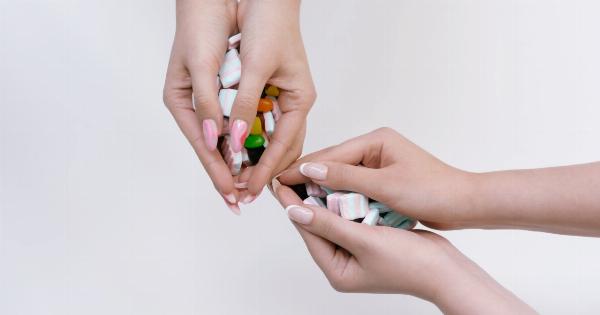Sugar is commonly known for its negative impact on our health, contributing to obesity, diabetes, and other chronic diseases. However, its detrimental effects are not limited to our internal organs.
Research shows that sugar can also have a significant impact on the health and appearance of our skin, leading to premature aging. In this article, we will explore how sugar consumption affects our skin and discuss steps we can take to mitigate its harmful effects.
The link between sugar and skin aging
The process of aging is complex and multifaceted, involving various factors such as genetics, environmental factors, and lifestyle choices. One such lifestyle choice that can greatly accelerate the aging process is excessive sugar consumption.
When we consume sugar-laden foods or drinks, our bodies undergo a process called glycation.
Understanding glycation
Glycation is a natural process where sugar molecules bind to fats and proteins in our body, forming harmful substances called advanced glycation end products (AGEs).
These AGEs can wreak havoc on our skin by damaging collagen and elastin, the proteins responsible for maintaining its structure and elasticity.
The role of collagen and elastin in skin health
Collagen is a fibrous protein that provides strength and structure to our skin, while elastin is responsible for its elasticity and firmness. As we age, our bodies produce less collagen and elastin, leading to the formation of wrinkles and sagging skin.
The glycation process further accelerates this natural decline, resulting in more noticeable signs of aging.
Sugar-induced inflammation
In addition to glycation, sugar consumption can also trigger inflammation in the body. Chronic inflammation has been linked to various skin conditions, including acne, rosacea, and psoriasis.
Inflammation can disrupt the natural balance of our skin, impairing its function and leading to the appearance of aging signs such as fine lines, wrinkles, and dullness.
The impact of sugar on skin health
High consumption of sugar can lead to a myriad of skin issues, including:.
1. Wrinkles and sagging skin
Glycation contributes to the breakdown of collagen and elastin, resulting in the formation of wrinkles and sagging skin. Excessive sugar consumption can accelerate this process, making the skin appear older than it actually is.
2. Uneven skin tone
The production of AGEs can also lead to the formation of pigmentation issues, such as age spots and uneven skin tone. These dark spots can make the skin appear dull and aged.
3. Skin inflammation and acne
The inflammatory response triggered by sugar can exacerbate skin conditions like acne. Increased sugar consumption can lead to an overproduction of oil and sebum, clogging pores and promoting the growth of acne-causing bacteria.
4. Impaired skin healing
When our bodies are constantly dealing with high levels of sugar, the natural healing processes of the skin can be impaired. This can result in prolonged recovery times for wounds, cuts, and other skin injuries.
Protecting your skin from sugar-induced aging
While it may seem daunting to eliminate sugar completely from our diets, making conscious choices to reduce our sugar intake can significantly benefit our skin’s health and appearance:.
1. Opt for natural sugars
Instead of consuming refined sugars found in processed foods, choose natural alternatives like fruit, which contain fiber and essential nutrients alongside their natural sugars.
2. Read labels
Learn to identify hidden sugars in packaged foods by reading food labels. Sugar can be listed under various names, such as high fructose corn syrup, sucrose, or dextrose.
3. Adopt a balanced diet
Eating a balanced diet rich in fruits, vegetables, lean proteins, and healthy fats can promote skin health and slow down the aging process.
4. Stay hydrated
Drinking an adequate amount of water keeps your skin hydrated and helps flush out toxins, promoting a healthy complexion.
5. Protect your skin from sun damage
Excessive sun exposure can further accelerate the aging process. Protect your skin by wearing SPF, seeking shade, and using protective clothing.
6. Practice good skincare habits
Establish a skincare routine that includes cleansing, moisturizing, and exfoliating. Use products specifically formulated to address signs of aging.
Conclusion
Sugar consumption can have a significant impact on the aging process of our skin. By understanding how sugar affects our skin and making conscious choices to reduce our sugar intake, we can protect our skin from premature aging.
Incorporating healthy lifestyle choices, such as a balanced diet, staying hydrated, and practicing proper skincare habits, can go a long way in maintaining youthful and healthy-looking skin.






























